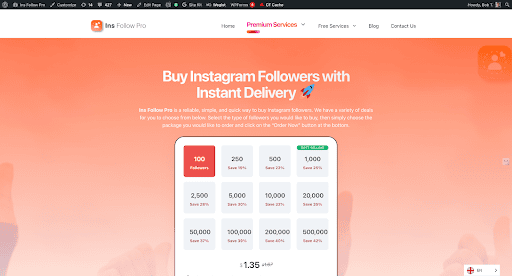
If you’re dead set on majoring in marketing, you already know how broad this field is. It spans dozens of specializations, from pay-per-click advertising to public relations and search engine optimization.
That’s why you need to choose your career early on before you graduate and start looking for a job. Of course, you can decide to become a pro in both PR and SEO, but why would you? Instead of trying to become a jack-of-all-trades, evaluate your options and choose one field to focus on. The key is to specialize.
To help you out in this quest, here’s the list of nine careers where your major will come in handy. Which one of them would be your dream job?
Source:
Market Researcher
Love finding and making sense of stats? Enjoy making data-driven academic reports? If you do, this career is for you. Of course, at the beginning, you will need to learn some basics and complete typical assignments before diving into statistics and reports. However, all you need to get rid of them is to ask an expert “please rewrite my essay” and focus on what you prefer.
What does the market researcher role entail? Specialists in research and analysis lay the groundwork for all further campaigns. They gather and compile data on target consumers, their preferences, and reactions.
All those reports will later define
-
key messages;
-
communication channels;
-
types of advertising;
-
visual style, and so much more.
A market researcher should have an analytical mind. Strong research skills are a must too, as the job title suggests.
Social Media Manager
These days, most businesses can’t survive without social media presence. This is where social media managers and marketing specialists come in. Depending on the target audience, they have to be savvy in some or all of these social networks’ business features:
-
Facebook;
-
Instagram;
-
Twitter;
-
LinkedIn;
-
Pinterest.
Depending on the employer’s needs, social media managers may focus on promotion efforts, both paid and organic. Alternatively, they might be responsible for creating and posting social media content to increase the engagement metrics.
As it’s the case with many small businesses and startups, though, these two responsibility sets often merge into one.
Public Relations Manager
These professionals’ responsibilities typically revolve around:
-
organizing press conferences and other similar events;
-
preparing and sending out public statements;
-
collaborating with journalists, news outlets, and magazines.
Depending on the employer, they can also:
-
serve as spokespersons;
-
track the person’s, brand’s, or product’s reputation;
-
do damage control.
PR requires outstanding negotiation and networking skills, as well as public speaking, presentation, and event planning competencies. So, if you enjoy being in the thick of it and communicating with people of all kinds, this is the job for you.
Media Buyer
This one probably makes you scratch your head: who is a media buyer exactly? In a nutshell, media buyers choose the communication channels for particular campaigns. They rely on market research and analysis to find the most effective ones.
Media buyers work across all types of potential advertising spaces, online and offline, from Facebook ads to airing ads on TV. They are the ones who decide where and how the product will be promoted.
Of course, they also reach out to those channels, flesh out the terms of cooperation, and seal the deal with them, if need be. This is how it works with ads on TV channels, in magazines, and online news outlets.
Digital Marketing Specialist
Typically, digital marketing specialists have general expertise in online communication and promotion channels. They can decide how to use them to appeal to the target audience and develop the communication strategy for the product’s online presence.
There are also a bunch of specializations that exist within the framework of digital marketing. Here are just some of them:
-
search engine optimization (SEO);
-
email marketing;
-
PPC (pay-per-click) advertising;
-
social media marketing.
Content Writer/Marketing Manager
If you have a knack for writing, consider a content writer position. They write for corporate blogs and/or outreach marketing. More often than not, they’re also responsible for developing a content plan and have a say in crafting the content strategy.
Content writers work closely with other specialists in the field, especially their SEO-savvy colleagues.
The content marketing manager position, in its turn, is typically one level up from a content writer. People in this job:
-
manage content writers;
-
research which types of content bring the highest engagement;
-
are responsible for creating the content strategy.
Sales Representative
Sales representatives are still essential in most industries, despite the rise of digital marketing. That’s because someone still has to follow up on leads and convert them into customers.
Their typical day is full of calls, in-person or online meetings, emailing, and updating the CRM system.
As sales representatives are the backbone of any company’s customer service, it’s not just the major that counts. It’s the person’s interpersonal skills, like communication, persuasiveness, negotiation, and conflict management.
Event Marketing Specialist
This isn’t just about the conferences and forums where a company has a stand and promotes their products or services. Think about pop-ups, public stunts, and mascots: all of those fall under the responsibility of an event marketing specialist.
As you might’ve already guessed, this person has to combine two sets of skills that are often considered opposite in nature. They need creativity to generate ideas and meticulous event planning skills to execute them. Excellent negotiation and communication skills are also a must.
You don’t have to wait until you get an internship in the field to boost most of these skills. Volunteer for an NGO or a student association now. This is how you’ll gain first-hand field-conditions experience in coming up with and organizing events.
Brand/Product Manager
Brand and product managers serve as the coordinating force behind every marketing effort for a particular brand or service. This isn’t an entry-level position, but it can certainly be an occupation to aim for once you get the necessary skill set.
How does someone get to this level in their career? Brand and product managers gain experience in lower-level occupations as analysts or assistants. There are also trainee programs for those working towards an MBA.
In Conclusion: How to Get Started in Marketing
Whichever career you’re inspired to pursue, starting out will be easier if you keep these four tips in mind.
-
Gain real experience outside of the classroom. Theory won’t get you anywhere if it’s detached from the reality of marketing. Try to get working experience and the corresponding skill set as early as possible.
-
Internships on their own aren’t that outstanding. Most college grads have one or several internships on their resume. Focus on what you learned during them instead of hoping that just dropping the company’s name will get your foot in the door.
-
Don’t list everything you’ve done on your resume. It’s tempting to include all the extracurriculars, but it paints you as a jack-of-all-trades and a master of none. List only the activities that are directly related to the skills relevant for the position.
-
Strive to become an expert in one field. Marketing is just so big that not specializing isn’t an option. That’s why there are whole teams that focus on it. You can’t try to take over the responsibilities of the whole team, obviously. Instead, concentrate on developing a specialized skill set.



